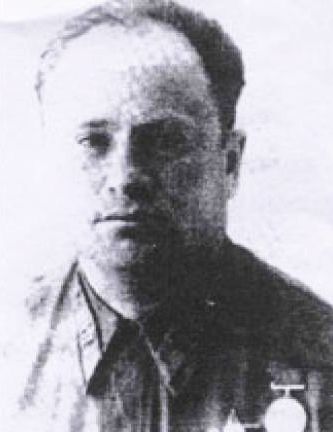Isaac Betsis was born in the town of Katarzhino, near Odessa, in 1911 (according to other sources in 1913). As he would later write in his curriculum vitae, his father Moisei was an artisan. In 1926, Isaac finished a seven-year school in Odessa and entered a vocational school at a steel mill in that city. In 1929, he became a worker at the mill and joined the Communist Party. In 1932, Isaac was drafted into the Red Army. After his discharge, he decided to switch careers, and in 1935 he enrolled in the Aviation Military School in Kharkov. In 1939, Betsis completed a course for aviation commissars. He took part in the Soviet-Finnish (Winter) War of 1939-1940 in the rank of senior political officer. However, he also did active duty as a pilot, and received several military decorations for his service in this war, including the coveted Order of the Red Star (1940).
Betsis was called up in the very beginning of the Soviet-German War in June 1941. In November that year, he was awarded the Order of Lenin. In the spring and summer of 1942, Betsis, in the rank of battalion commissar, saw action in the area of Yelets (Lipetsk Oblast), where his Bomber Aviation Division was based. According to the memoirs of General S. Krasovsky, Senior Battalion Commissar Isaac Betsis was the soul of the unit.
"A man of heroic physique, Betsis was distinguished by his honesty and bravery, and the pilots were ready to follow him into fire and water, as the saying goes. Sometimes, he would fly four or five sorties a day on his Pe-2, and rarely did anyone see him tired or depressed, although he sometimes brought the plane back, as the song says, "On a wing and a prayer." Isaac Moiseevich was particularly successful in reconnaissance missions. He would fly on his missions either at dawn or at dusk. Often, the “Messerschmitts” pursued him, but Betsis would leave them behind on a low-level flight. Few men in our regiment could compete with him when it came to mastery of the low-level flight. Betsis did not try to keep his knowledge secret, and generously shared his experience with the younger guys. And when he saw that someone was shirking from flight duty, he would become merciless, angrily making fun of the cowards“
Stepan Krasovsky, A Life in the Air Force. Moscow, 1968, pp. 141-142.
On June 29, 1942, during a raid on the German positions near Yelets, Betsis' plane was shot down. Following a direct hit in the right wing, the aircraft caught fire. Betsis crashed the burning plane into the thick of the German troops. He received no posthumous decorations. Isaac's wife Esfir was notified that her husband had gone missing in action.







